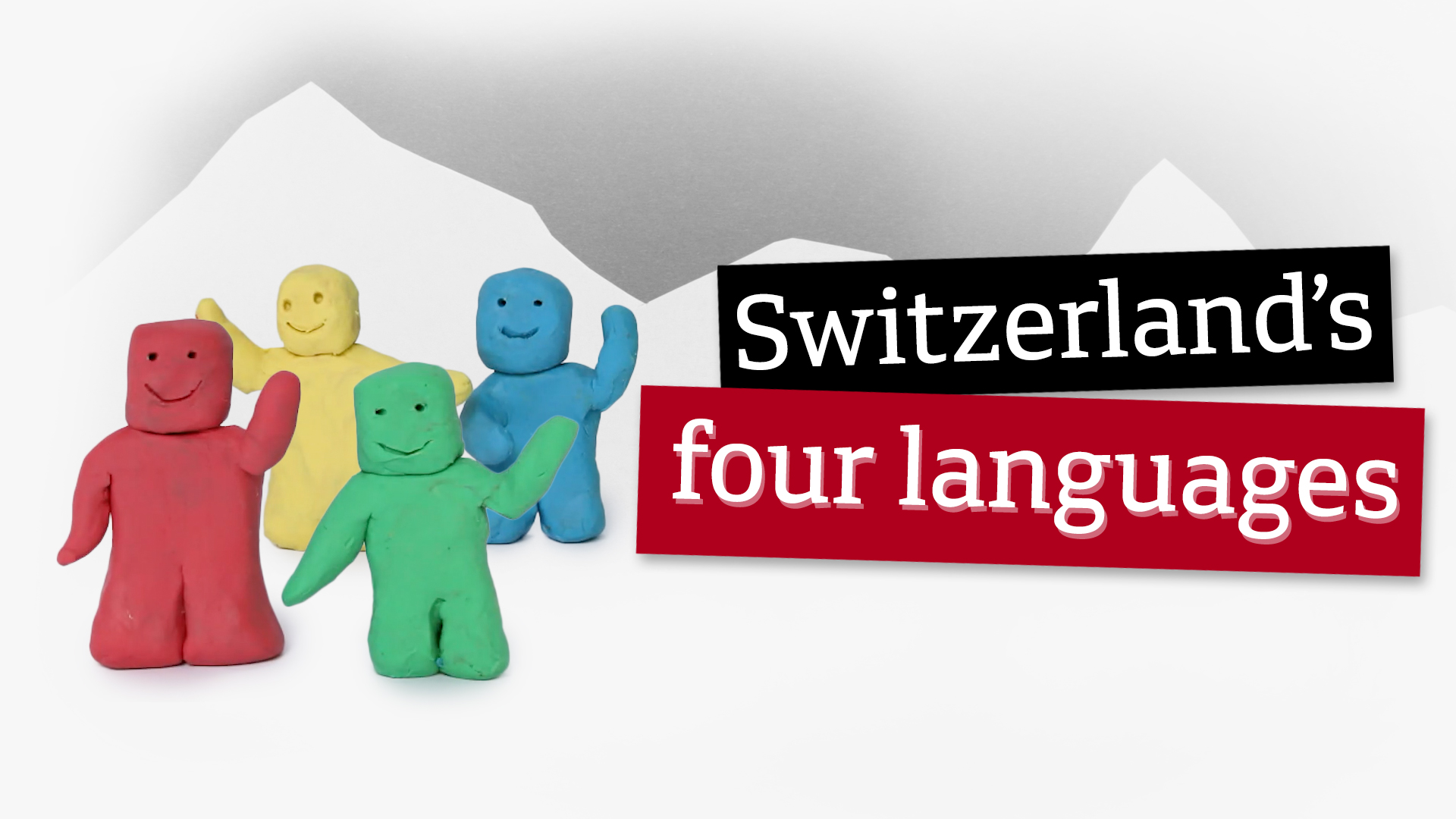Oui or nein: are languages a major fault line in Swiss direct democracy?

Measures to tackle rising healthcare costs won the backing of French- and Italian speaking Switzerland but failed to pass a nationwide vote. It’s the latest example of a linguistic and cultural divide that has been around for centuries. But new trends are emerging.
The results of the June 9 vote are in. Despite healthcare costs increasing faster than wages, the nation’s voters decided against capping health insurance premiums at 10% of household income. Around 56% of those who cast their vote said no to the “Premium Relief Initiative”, launched by the left-wing Social Democratic Party.

More
June 9, 2024 votes: results from across Switzerland
A look at the map of Switzerland showing the results indicates the return of a familiar bogeyman: the Röstigraben or “Rösti ditch”. It refers to differences between the German-speaking part of the nation and the other language regions mot only in terms of preference for a traditional roasted potato dish – Rösti – but also on other matters of greater national importance.
On June 9, all the French-speaking cantons – and the Italian-speaking canton of Ticino – voted in favour of capping health insurance premiums. But it was the majority German-speaking cantons that decided the vote.
“For the Premium Relief Initiative you can talk about a significant divide, for the other subjects of yesterday’s vote not so much,” says Martina Mousson, a project manager at the gfs.bern research institute.

More
Switzerland’s four languages
Almost a decade ago, another nationwide vote on health insurance also exposed the Röstigraben divide. French-speaking Western Switzerland agreed on a proposal for a single-payer insurance model. But it was drowned out by the rest of the country, resulting in a clear 61.8% voting “no” nationwide. Earlier in 2014, the Swiss voted narrowly in favour of limiting immigration from the European Union despite the wishes of French-speaking cantons.
Switzerland’s language divide used to be bigger
According to the Political Atlas of SwitzerlandExternal link, which contains analyses of over 1,000 political votes and elections as far back as 1866, the Röstigraben divide was much more significant in the past. Ideological differences between the German-speaking part of the country and French and Italian-speaking regions was evident in two-thirds of election results in the 19th century. Religion also played a role, with between 60% and 80% of the vote results for that period revealing a clear difference between voters in the Catholic and Protestant regions of Switzerland. In the 20th century, only social and foreign policy issues generally continued to divide linguistic regions, with between 10% and 30% of votes overall showing such patterns. By the 21st century, the linguistic divide had become less significant.

More
How are you? What is on your mind? Take part in our big survey
“In the 1990s, the landscape changed and cities in the German-speaking region began voting alike. The same thing happened in the cities and countryside in French-speaking Switzerland,” according to EPFL researcher Shin Alexandre Koseki, who analysed three decades of voting dataExternal link by municipality and published the results in 2016.
Based on his analysis, there is growing polarisation between major Swiss cities, French-speaking Switzerland, Ticino and part of canton Graubünden in eastern Switzerland on one hand and, on the other hand, the suburbs and countryside in the German-speaking region with Italian-speaking canton Ticino as a wildcard.
“In the past few votes we had in Switzerland, the language divide has often been less important than in the past,” says Mousson.
Behavioural differences between French and German-speaking regions
Are political differences linked to a fondness or aversion for potato dishes? Do viewpoints differ depending on whether you eat fondue or raclette? A 2022 working report published by the University of St Gallen titled “Mind Your Language: The Role of Culture in Future-Oriented BehaviorExternal link” tried to unravel the link between politics, language and culture. It used tax data from the bilingual canton of Bern to compare the behaviour of individuals that are exposed to a common institutional, political, economic, and geographic environment but differ in their language.
“Individuals in the German-speaking part of Switzerland are more prone to future-oriented behaviour than their French-speaking fellow citizens,” the report stated.
This eye on the future means that German-speakers save more for retirement, are more likely to pursue continuing education and training, are less likely to gamble, and have higher overall wealth. It also affects policy preferences, especially when future rewards are vague but short-term costs are immediately clear. This includes topics like social welfare programmes, market economy reforms, or measures to deal with climate change.
“The findings stress the benefits of federalism,” concluded the report.
Edited by Veronica De Vore

In compliance with the JTI standards
More: SWI swissinfo.ch certified by the Journalism Trust Initiative










You can find an overview of ongoing debates with our journalists here . Please join us!
If you want to start a conversation about a topic raised in this article or want to report factual errors, email us at english@swissinfo.ch.